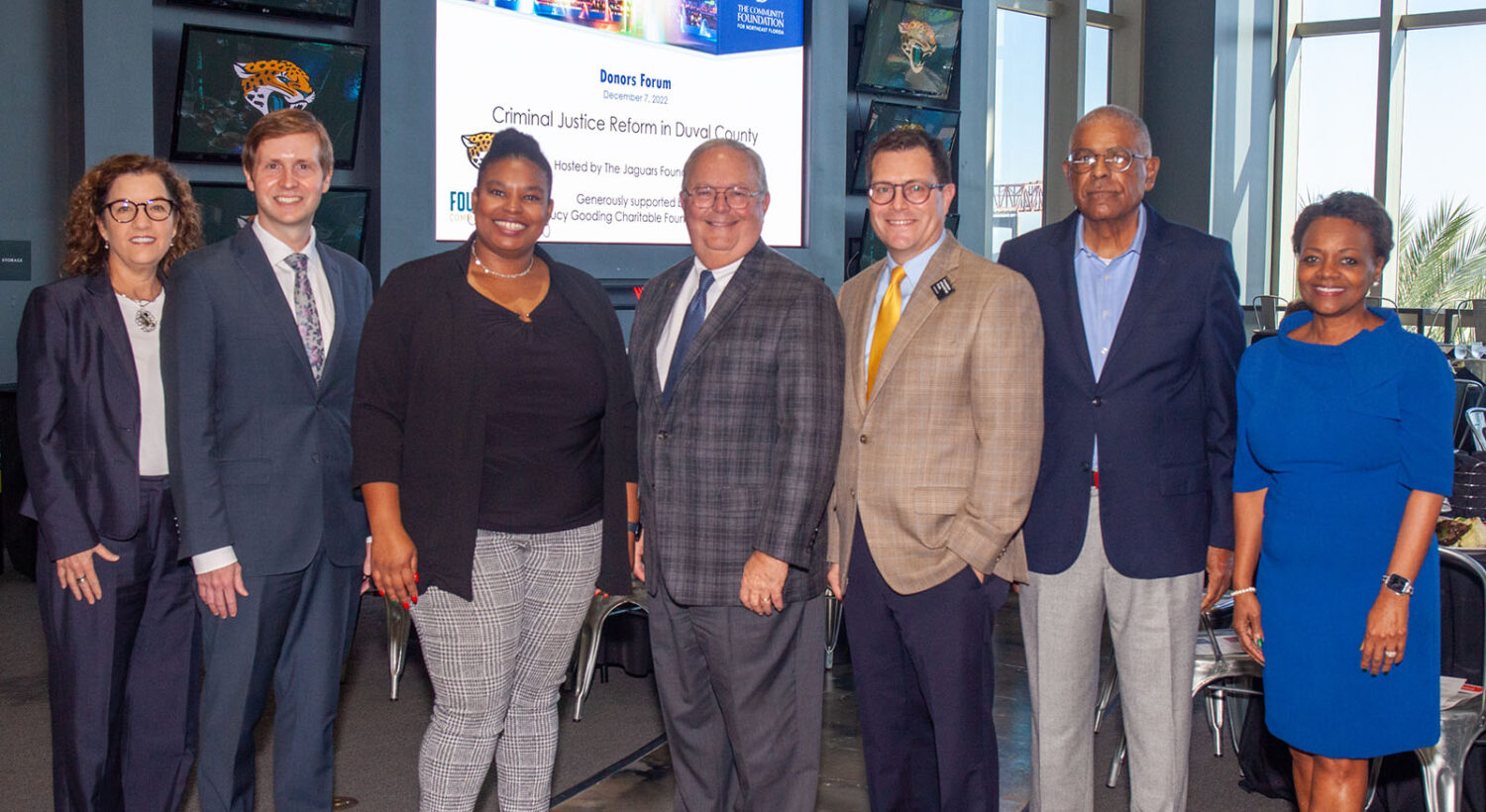On December 7, 2022, The Community Foundation for Northeast Florida presented a Donors Forum to discuss Criminal Justice Reform in Duval County, which was hosted by The Jaguars Foundation and generously supported by the Lucy Gooding Charitable Foundation Trust. The program opened with introductions from Whitney Meyer, Chief Community Impact Officer for the Jacksonville Jaguars, and Judge Brian Davis, Chair of TCF Board of Directors.
Guest panelist Charlie Cofer, Public Defender for the Fourth Judicial Circuit, gave an overview of the criminal justice system in Duval County, walking through the process of what happens after someone is arrested for a crime. Guest panelist Adrienne Johnson, South Regional Director for the West at The Bail Project, gave an overview of The Bail Project, its impacts, and its goals. The Bail Project is a national organization designed to combat mass incarceration by providing bail assistance using a revolving bail fund.
Highlights from Charlie Cofer
- There are many ways people come into the criminal justice system, but the vast majority have been arrested and charged with either a felony or a misdemeanor. Every person is entitled to a first appearance hearing within 24 hours, and Duval County holds a morning and an afternoon session every day of the year.
- Misdemeanor hearings often resolve at the first appearance if a plea is offered and taken, and there is pressure to resolve as many as possible because of the large number of cases. If a plea is not taken, bond is set, and a court date determined.
- Felony charges result in a limited hearing, with a determination of probable cause, bond being set, and the appointment of public defender if necessary.
- The options to post bond are to provide cash or to take out a surety bond through a bondsman, who charges 10% of the bond to post bail.
- If a person is unable to post bail, they remain in jail throughout the entire criminal justice process. In a misdemeanor case, the speediest trials can take place 90 days or more after an arrest. In a felony case, the speediest trials may occur 175 days or more after arrest. The more complicated the case, the longer the time to trial.
- The City of Jacksonville spends $9-$12 million annually housing pretrial detainees.
- Duval County has 1½ times the incarceration rate of Florida and 2½ times the national rate, and half of the people in Duval County stay in jail until their case is deposed. There are more inmates in the Florida Department of Corrections than any other county in the state, comprising more than 8 percent of the total state prison population.
- Many studies have been done about the effects of not being able to post bail, such as the danger of losing jobs and residences due to not being able to work, the inability to take care of families and children, and the increased burden on social services.
- There’s a common saying among law enforcement: “You can’t arrest your way out of a crime problem.” Addressing underlying issues such as poverty and economic disparity will go a long way toward helping with criminal justice.
Highlights from Adrienne Johnson
- The legal principle of presumed innocence (“innocent until proven guilty”) is difficult to ensure for every American under the current circumstances in the criminal justice system, particularly for those serving jail time before a trial, and is often dictated by means. When the legal system is infused with money, and justice depends on that money, this can cause serious problems.
- Cash bail is the single largest driver of jail growth in America in the past two decades. The average bail is $500, and 1 out of every 2 Americans cannot afford the expense of paying bail. More than 5 million people each year face this decision when they enter the criminal justice system.
- In 2017, seeing an extreme need in many communities, The Bail Project was founded to provide bail assistance and a range of services to support those attending court. By doing so, the organization helps restore the presumption of innocence, reunites families, and challenges a system that criminalizes race and poverty.
- In the last five years, The Bail Project has provided more than $70 million in bail assistance for nearly 27,000 people across the country, preventing more than 1 million nights in jail and saving more than $800 million in related costs.
- The Bail Project interviews every person referred, determines eligibility and need, and creates a personalized plan for each individual. The purpose is to ensure that each client is able to come back to court.
- Clients of The Bail Project have a 94 percent rate of returning for court appearances, and 1 in 3 have ultimately had their cases dismissed.
- More than 65 percent of its clients are Black, indigenous, or people of color, 23 percent report a history of substance abuse, and 17 percent report a history of mental health needs.
- The organization works within a model it calls “Community Release with Support,” ensuring that clients have what they need to successfully navigate and complete their time in court. This includes things like providing cell phones, texting reminders of important dates, arranging transportation or childcare, and connecting to resources and services to address issues like substance abuse, mental health, or other factors.
- While there is a common perception that posting bail or being released on own recognizance (ROR) decreases public safety and increases recidivism, the opposite is true. People who have been in jail, even for a short time, are more likely to re-offend because the experience destabilizes their lives.
- For fiscal year 2021, Duval County budgeted more than $124 million to detain people in jail. If The Bail Project helps 350 people a year in Duval County, it can reduce the pretrial jail population by 20-30 percent and save millions of dollars annually.
- The long-term goal of The Bail Project is to build a body of evidence to show that there are alternative ways to invest in a pre-trial system that is just, equitable, and safe – with the hope to implement lasting policy change and ultimately end the cash bail model.
To learn more about The Bail Project’s impact since its launch in Jacksonville check out this impact report.
Explore More Topics from Donors Forum
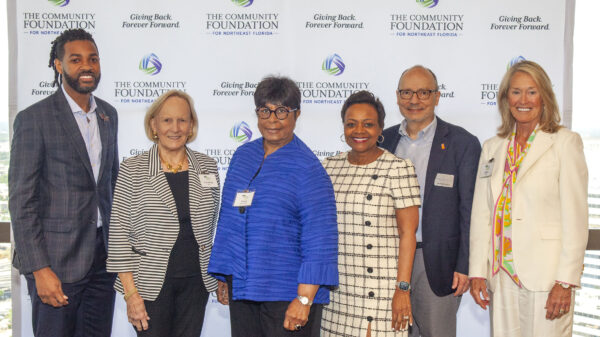
The Impact of Collective Giving
On April 17, 2025, The Community Foundation for Northeast Florida hosted a Donors Forum at the River Club to discuss The Impact of Collective Giving. The featured speaker was Michael Layton, Philanthropy Chair at the Dorothy A. Johnson Center for Philanthropy.
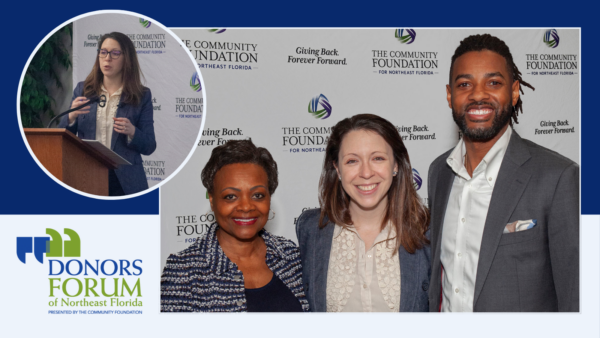
Trends in Philanthropy
On March 25, 2025, The Community Foundation for Northeast Florida hosted a Donors Forum at the UNF Adam H. Herbert University Center to discuss Trends in Philanthropy. The featured speaker was Tory Martin, Director of Communications and Strategic Partnerships for the Dorothy A. Johnson Center for Philanthropy, which just released its report 11 Trends in Philanthropy for 2025.

California Fires: How to Help
Community foundations across California are activating rapid response funds to help those impacted by the devastating wildfires that have displaced nearly 200,000 people in and around Los Angeles.
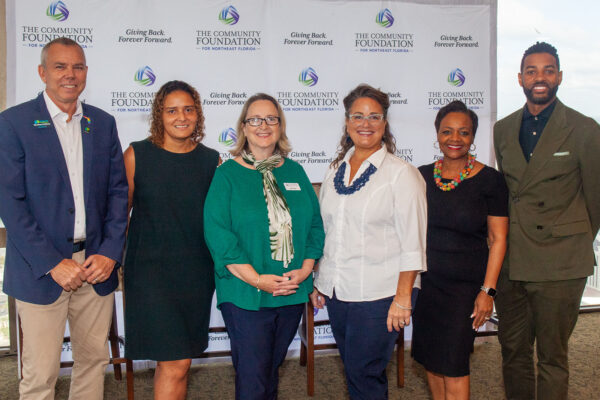
The State of LGBTQ Philanthropy
On October 23, 2024, The Community Foundation for Northeast Florida hosted a Donors Forum to discuss the State of LGBTQ Philanthropy.
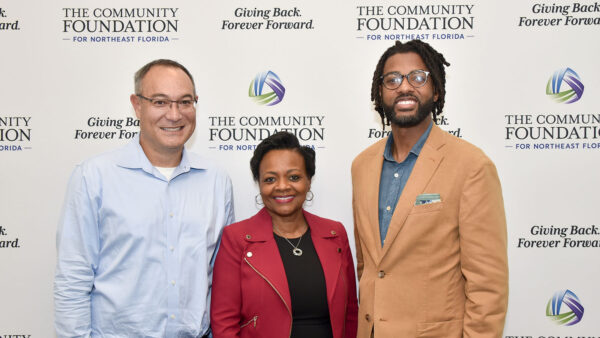
Pluralism and Philanthropy
On September 5, 2024, The Community Foundation for Northeast Florida hosted a Donors Forum at the University of North Florida’s Adam W. Herbert University Center, to discuss pluralism and philanthropy.
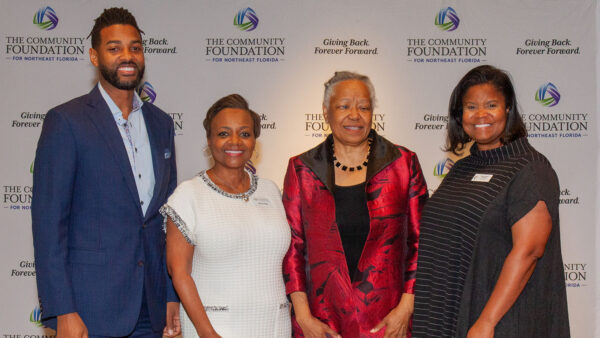
A Community Approach to Health Equity
On August 13, 2024, The Community Foundation for Northeast Florida hosted a Donors Forum at the Cummer Museum of Art & Gardens, to discuss a community approach to health equity with featured speaker, Dr. Gail Christopher.
